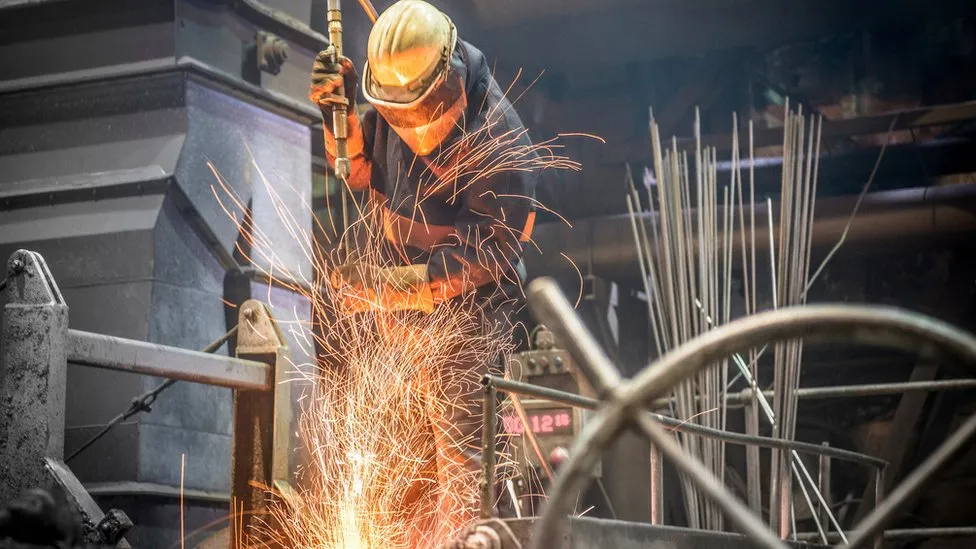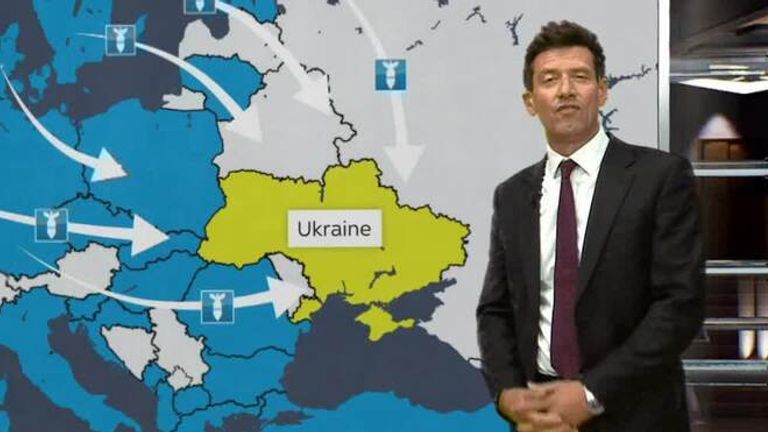Warning over future of British Steel as it cuts jobs
Unions have warned on the future of UK steelmaking after British Steel announced it will shut its coking ovens in Scunthorpe and cut up to 260 jobs.

The Chinese-owned firm blamed an "unprecedented" rise in running costs and demands to be greener.
The biggest steelworkers' union said the cuts could have a "catastrophic impact" on steel production in the UK.
Coking ovens turn coal into coke which burns at the higher temperature needed for blast furnaces to make steel.
The closure of the ovens, which means British Steel will import coke, has been seen as a concerning indicator about the health and future of the UK steel industry.
British Steel currently employs around 4,200 workers in the UK and is owned by Chinese company Jingye.
It said it had seen its bills for energy and carbon increase by £190m last year, alongside an "unprecedented rise in operating costs, surging inflation and the need to improve environmental performance".
It said "decisive action" was needed as its coke ovens were "reaching the end of their operational life", and that closing them would "bring environmental benefits including reductions in emissions to air and water".
Alun Davies, national officer of the Community Trade Union, which represents steelworkers, said the union would "not accept redundancies" and added "nothing is off the table when it comes to protecting our members' jobs".
"British Steel's plan to close the coke ovens could have a catastrophic impact on jobs and steel production at Scunthorpe and the UK as a whole," he added.
Mr Davies claimed closing the ovens would see the company "depending on unreliable imported coke" wand would "risk our sovereign capability to produce steel in the UK".
The Unite union, which also represents steelworkers, accused Jingye of reneging on investment promises and said the UK government had "no serious plan for the industry".
General secretary Sharon Graham added that she was yet to see "any financial justification for the closure of the coking ovens".
But British Steel chief executive Xifeng Han said steelmaking in the UK was "uncompetitive" when compared to other international markets.
"Our energy costs, carbon costs and labour costs are some of the highest across the world, which are factors that we cannot influence directly," he said.
Mr Han said the plan was to "streamline" the business while keeping "the period of uncertainty for our colleagues as short as we can".
-bbc







